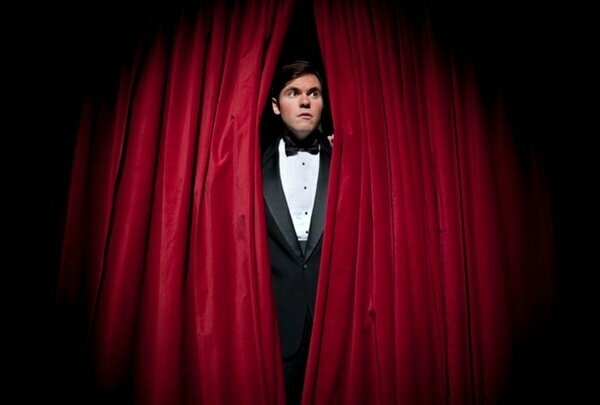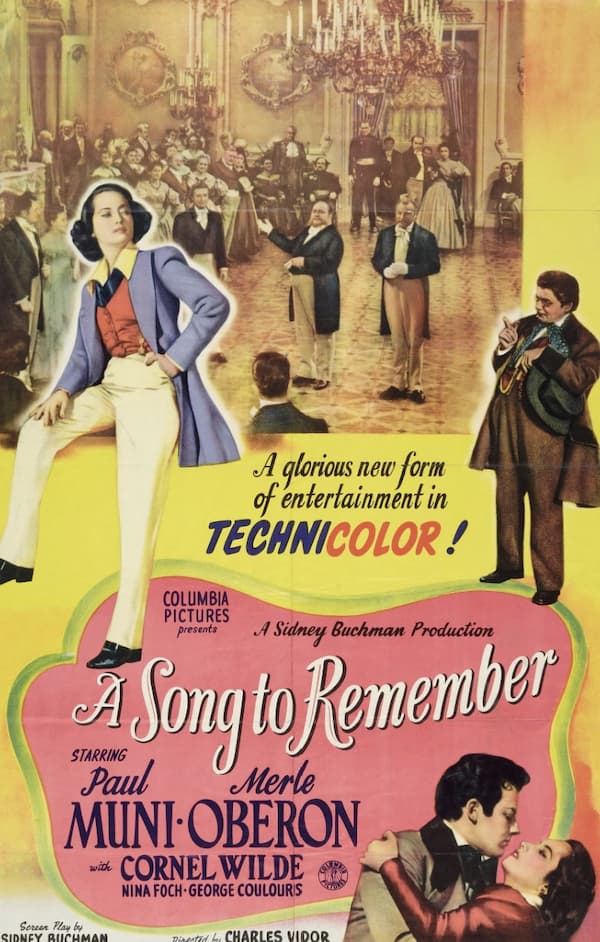The celebrate the 150th anniversary of Sergei Rachmaninoff’s birth in 2023, Mikhaïl Pletnev and the Orchestre Philharmonique de Radio France under Dima Slobodeniouk embarked on an ambitious musical adventure of performing the composer’s four piano concertos over two consecutive evenings.
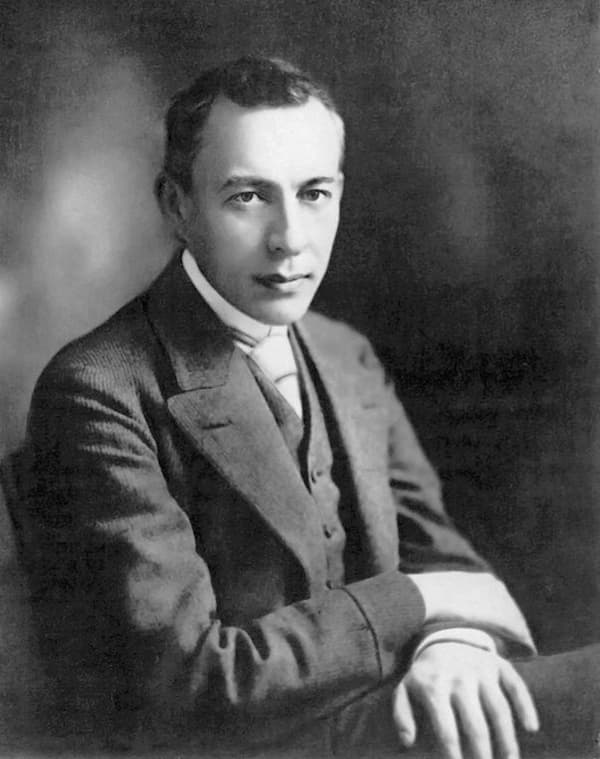
Sergei Rachmaninoff
Conducted by Dima Slobodeniouk and recorded live at the Auditorium de la Maison de la Radio et de la Musique, a venue known for its outstanding acoustics, the first part featured the Rachmaninoff Concertos No. 1 and No. 2 alongside two magnificent encores.
Sergei Rachmaninoff: Piano Concertos No. 1 and No. 2
Available until 01/10/2028
Mikhaïl Pletnev
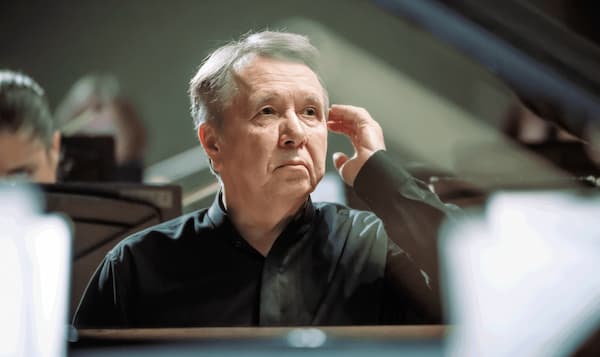
Mikhaïl Pletnev © Molchanovsky Alexei
Mikhail Pletnev is a towering figure in the classical music world, renowned as a pianist, conductor, and composer whose interpretive depth and technical mastery have left an indelible mark. Rising to prominence after winning the Tchaikovsky International Piano Competition in 1978 at age 21, Pletnev’s career has been defined by his ability to balance virtuosic precision with profound musical insight.
Pletnev is particularly fond of the Russian repertoire, revealing a rare sensitivity to the emotional and structural complexities of the music. He plays a Shigeru Kawai piano, an instrument that underscores his preference for a mellow singing tone that enhances lyrical passages. Possessing extraordinary technical mastery, Pletnev navigates complex works with precision and ease while often revealing new layers of meaning in familiar repertoire.
Dima Slobodeniouk
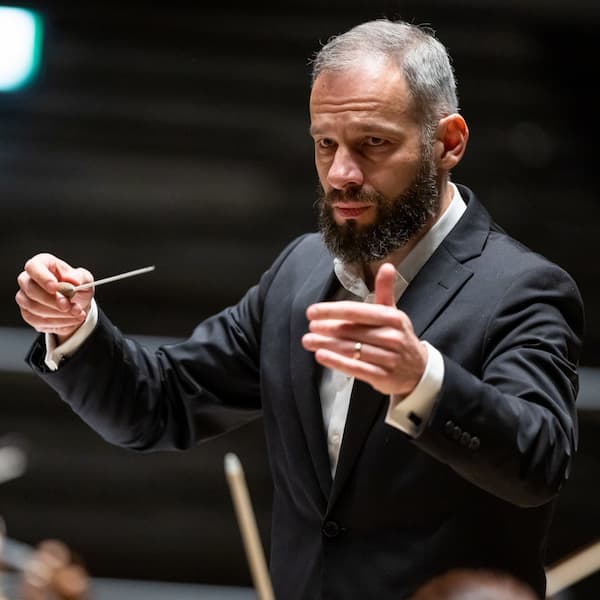
Dima Slobodeniouk © Sebastian Widmann
The distinguished conductor Dima Slobodeniouk, whose dynamic presence and collaborative spirit have earned him a prominent place in the international classical music scene, was trained at the Sibelius Academy in Helsinki. Under the mentorship of Jorma Panula, he developed a conducting style that blends precision with expressive freedom.
Slobodeniouk’s approach is marked by a deep respect for the score and a commitment to fostering dialogue with musicians, allowing for performances that are both structurally coherent and emotionally vibrant. His Russian roots inform his affinity for composers like Rachmaninoff and Shostakovich, yet his interpretations are noted for their universal appeal, balancing intensity with clarity.
Rachmaninoff Piano Concertos 1 and 2
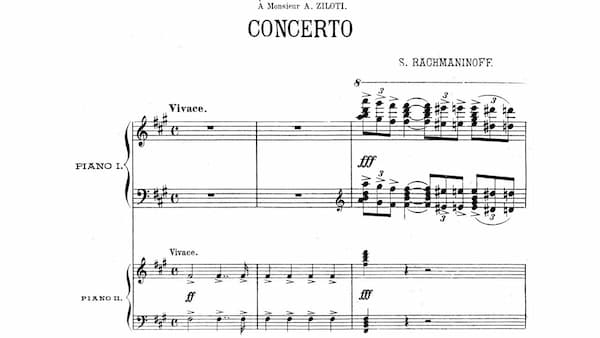
Rachmaninoff’s Piano Concerto No. 1
Rachmaninoff composed his first piano concerto at the age of 18, showcasing youthful exuberance and virtuosity. Pletnev’s interpretation emphasised a lyrical and restrained approach, avoiding excessive pathos. His performance highlighted the concerto’s delicate and expressive qualities, particularly in the Andante cantabile movement, which was described as a moment of “elevation féerique” (fairy-like elevation).
One of Rachmaninoff’s most famous compositions, the 2nd piano concerto is known for its lush melodies and emotional depth. It was composed after a period of depression and dedicated to Rachmaninoff’s hypnotherapist, Nikolai Dahl. Pletnev’s rendition was cited for its sensual and concentrated delivery and its ability to create an intimate, almost improvisational sound world. Blending sophistication with a folk-like simplicity, Pletnev balanced technical precision with emotional depth without indulging in exaggerated drama.
The Collaboration
Under Dima Slobodeniouk’s direction, the Orchestre Philharmonique de Radio France provided disciplined and expressive support. His sensitive conducting allowed Pletnev’s vision to shine, with the orchestra’s strings and woodwinds (notably the clarinet) enhancing the concertos’ lyrical lines. The collaboration was described as cohesive, with a focus on detail and spacious phrasing.
The first part of this ambitious musical adventure, which saw the performances of Rachmaninoff’s first 2 piano concertos, showcased Pletnev’s musical maturity and mastery, while the Orchestre Philharmonique de Radio France delivered a refined and emotionally resonant interpretation of Rachmaninoff’s iconic works.
Encores
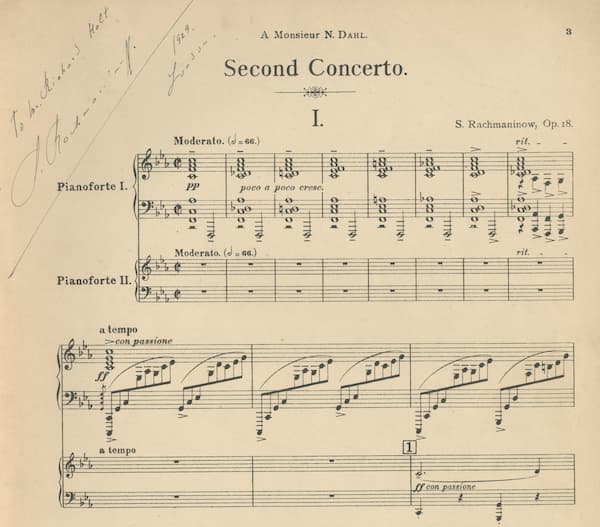
Rachmaninoff’s Piano Concerto No. 2
Pletnev’s selection of two encore pieces was strategic, as they offered a balance between lyrical introspection (Chopin) and virtuosic flair (Moszkowski). His performance of the famous Chopin Nocturne Op. 9, No. 2 became a moment of serene introspection. His approach emphasised the work’s poetic elegance, with a restrained yet deeply felt delivery. It showcased his ability to shape the melody with subtle dynamic shifts and a refined touch.
The Etudes de Virtuosité, Op. 72, No. 6 by Moritz Moszkowski was designed as a technical showpiece with rapid scalar passages, light articulation, and a playful, almost salon-like charm. Pletnev’s rendition was described as “scintillating,” with each note articulated crisply to create a cascade of sound.
This concert drew a packed auditorium, and Slobodeniouk’s Finnish-Russian perspective offered a unique lens. His leadership underscored his skill in supporting a soloist of Pletnev’s calibre while shaping Rachmaninoff’s lush orchestrations into a cohesive and electrifying experience.
Sergei Rachmaninoff: Piano Concertos No. 1 and No. 2
For more of the best in classical music, sign up for our E-Newsletter

